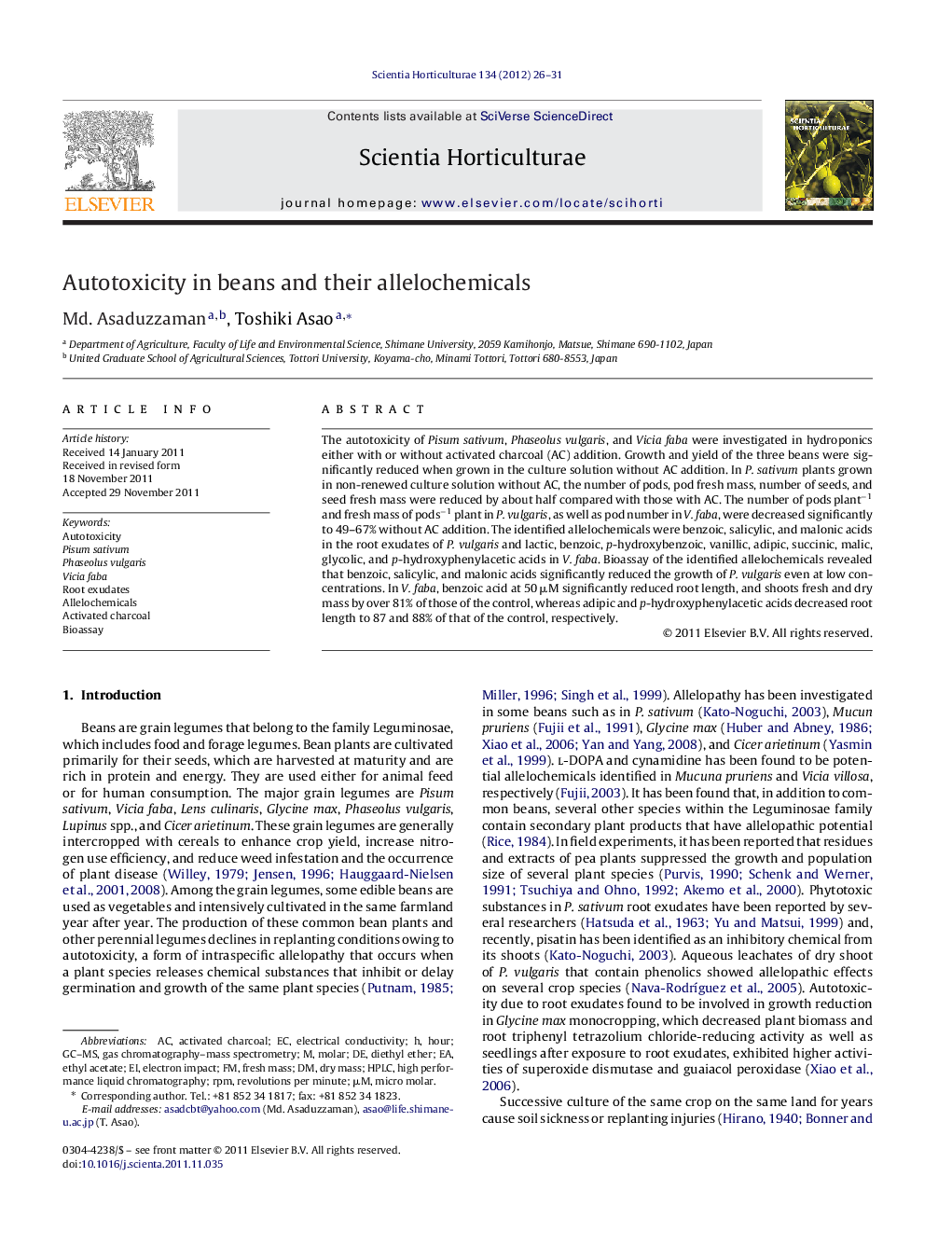| Article ID | Journal | Published Year | Pages | File Type |
|---|---|---|---|---|
| 4567754 | Scientia Horticulturae | 2012 | 6 Pages |
The autotoxicity of Pisum sativum, Phaseolus vulgaris, and Vicia faba were investigated in hydroponics either with or without activated charcoal (AC) addition. Growth and yield of the three beans were significantly reduced when grown in the culture solution without AC addition. In P. sativum plants grown in non-renewed culture solution without AC, the number of pods, pod fresh mass, number of seeds, and seed fresh mass were reduced by about half compared with those with AC. The number of pods plant−1 and fresh mass of pods−1 plant in P. vulgaris, as well as pod number in V. faba, were decreased significantly to 49–67% without AC addition. The identified allelochemicals were benzoic, salicylic, and malonic acids in the root exudates of P. vulgaris and lactic, benzoic, p-hydroxybenzoic, vanillic, adipic, succinic, malic, glycolic, and p-hydroxyphenylacetic acids in V. faba. Bioassay of the identified allelochemicals revealed that benzoic, salicylic, and malonic acids significantly reduced the growth of P. vulgaris even at low concentrations. In V. faba, benzoic acid at 50 μM significantly reduced root length, and shoots fresh and dry mass by over 81% of those of the control, whereas adipic and p-hydroxyphenylacetic acids decreased root length to 87 and 88% of that of the control, respectively.
► Growth and yield of bean plants decline due to autotoxicity in non renewal hydroponics. ► Non-renewal solution with activated charcoal improves growth and yield in beans. ► Phenolic acids are the potential allelochemicals in beans.
